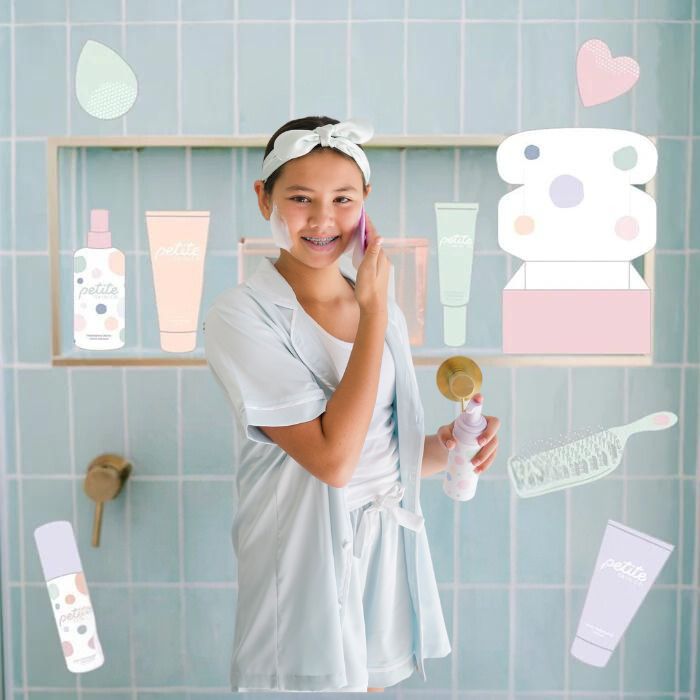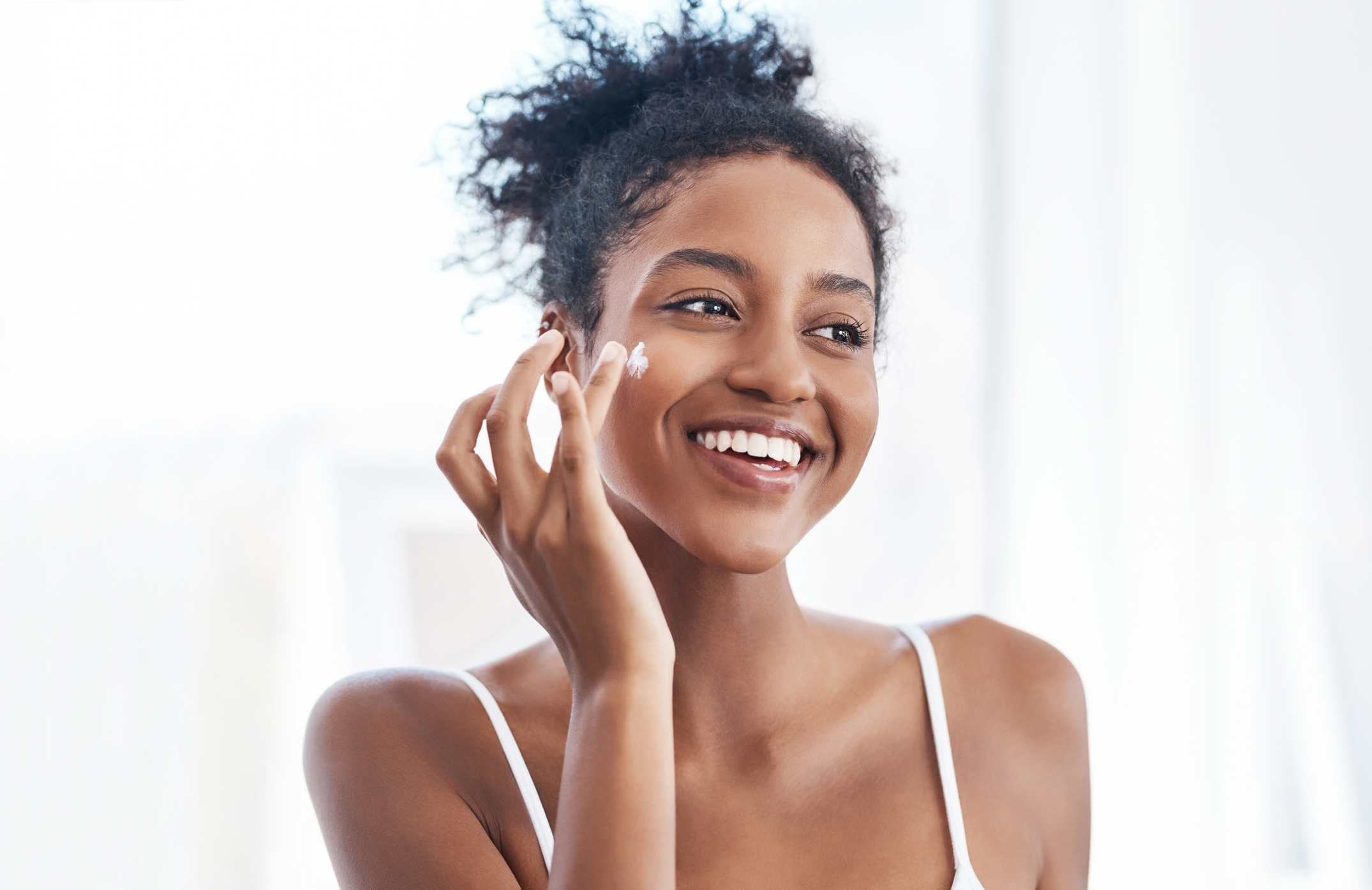Navigating the World of Skincare: A Guide for 11-Year-Olds
Related Articles: Navigating the World of Skincare: A Guide for 11-Year-Olds
Introduction
With great pleasure, we will explore the intriguing topic related to Navigating the World of Skincare: A Guide for 11-Year-Olds. Let’s weave interesting information and offer fresh perspectives to the readers.
Table of Content
Navigating the World of Skincare: A Guide for 11-Year-Olds

The teenage years are often marked by a surge in self-consciousness, and for many, this includes concerns about their skin. While navigating the complexities of adolescence, it is crucial to establish healthy skincare habits that nurture and protect the skin. This guide provides an understanding of the essential skincare products and practices for 11-year-olds, focusing on the unique needs of this age group.
Understanding Skin at 11
At 11, the skin is still developing and transitioning into adulthood. Hormonal fluctuations, especially during puberty, can trigger changes like increased oil production, breakouts, and sensitivity. While these changes are normal, they can cause distress and confusion. This is why establishing a gentle and effective skincare routine early on is vital.
The Foundation of a Healthy Skincare Routine
A basic skincare routine for 11-year-olds should focus on cleansing, moisturizing, and sun protection. These three steps provide the foundation for healthy and balanced skin.
1. Cleansing
Cleansing removes dirt, oil, and pollutants that accumulate on the skin throughout the day. For 11-year-olds, a gentle, water-based cleanser is ideal. Avoid harsh soaps or cleansers that strip the skin of its natural oils, leading to dryness and irritation.
Recommended Cleanser Types:
- Micellar Water: This gentle cleanser effectively removes makeup and impurities without harsh scrubbing. It is ideal for sensitive skin.
- Cream Cleansers: These cleansers offer a gentle and hydrating option, suitable for dry skin.
- Gel Cleansers: These are a good choice for oily skin as they help control oil production without drying the skin.
2. Moisturizing
Moisturizing is essential for maintaining the skin’s hydration levels and protecting it from dryness. For 11-year-olds, a lightweight moisturizer is generally preferred. Look for products containing ingredients like hyaluronic acid, which attracts and retains moisture, and ceramides, which help repair the skin barrier.
Recommended Moisturizer Types:
- Lightweight Lotion: These are easily absorbed and provide hydration without feeling heavy.
- Creams: These offer deeper hydration and are suitable for dry or sensitive skin.
- Serums: Serums are concentrated formulas that deliver specific benefits like hydration or anti-aging properties.
3. Sun Protection
Sun protection is crucial at any age, but especially for 11-year-olds, as their skin is more vulnerable to sun damage. Use a broad-spectrum sunscreen with an SPF of 30 or higher every day, even on cloudy days. Apply sunscreen liberally to all exposed skin, including the face, neck, ears, and hands, and reapply every two hours, especially after swimming or sweating.
Recommended Sunscreen Types:
- Mineral Sunscreen: These use mineral ingredients like zinc oxide and titanium dioxide to block UV rays. They are generally considered gentler on sensitive skin.
- Chemical Sunscreen: These use chemical filters to absorb UV rays. They are typically lighter and less likely to leave a white cast.
Addressing Specific Skin Concerns
While the basic skincare routine is essential, 11-year-olds may also experience specific skin concerns like acne, dryness, or sensitivity. Addressing these concerns requires specialized products and practices.
1. Acne
Acne is a common skin condition that often arises during puberty due to hormonal fluctuations. While it can be frustrating, it’s important to remember that acne is a normal part of growing up.
Recommended Acne Treatments:
- Salicylic Acid: This ingredient helps unclog pores and reduce inflammation. It is available in cleansers, toners, and spot treatments.
- Benzoyl Peroxide: This ingredient kills bacteria that contribute to acne. It is available in various strengths and formulations.
- Retinoids: These are vitamin A derivatives that help regulate cell turnover and reduce breakouts. They are available in prescription and over-the-counter forms.
2. Dryness
Dry skin can be uncomfortable and itchy. It is often caused by factors like cold weather, harsh soaps, or dehydration.
Recommended Dry Skin Treatments:
- Hyaluronic Acid: This ingredient attracts and retains moisture, leaving the skin feeling supple and hydrated.
- Ceramides: These are lipids that help repair the skin barrier and prevent moisture loss.
- Oils: Oils like jojoba oil, argan oil, or rosehip oil can provide deep hydration and nourish dry skin.
3. Sensitivity
Sensitive skin is prone to redness, irritation, and itching. It is often triggered by harsh chemicals, fragrances, or even certain fabrics.
Recommended Sensitive Skin Treatments:
- Gentle Cleansers: Avoid harsh soaps and opt for mild, fragrance-free cleansers.
- Hypoallergenic Moisturizers: Look for products labeled "hypoallergenic" or "fragrance-free."
- Avoid Irritants: Identify and avoid ingredients that trigger sensitivity, such as alcohol, fragrances, and essential oils.
Beyond Products: Establishing Healthy Habits
While skincare products play a crucial role, healthy habits are equally important for maintaining healthy skin.
1. Hydration
Drinking plenty of water is essential for keeping the skin hydrated from within. Aim for eight glasses of water daily.
2. Diet
A balanced diet rich in fruits, vegetables, and whole grains provides the nutrients necessary for healthy skin.
3. Sleep
Adequate sleep allows the skin to repair and regenerate itself. Aim for eight to ten hours of sleep each night.
4. Stress Management
Stress can trigger skin problems. Engage in stress-reducing activities like exercise, yoga, or meditation.
5. Avoiding Touching the Face
Touching the face can transfer bacteria and oils, leading to breakouts. Avoid touching your face unnecessarily.
6. Regular Exfoliation
Exfoliating removes dead skin cells, revealing fresh and healthy skin. Use a gentle scrub or chemical exfoliant once or twice a week.
7. Professional Consultations
If you experience persistent skin problems or have concerns about your skincare routine, consult a dermatologist for professional advice and treatment options.
FAQs
Q: What are the best skincare products for 11-year-olds with oily skin?
A: For oily skin, look for cleansers and moisturizers labeled as "oil-free" or "non-comedogenic," meaning they won’t clog pores. Consider using a gel cleanser and a lightweight, mattifying moisturizer.
Q: Is it necessary to use a toner?
A: Toners are not essential for all skin types, but they can be beneficial for oily or acne-prone skin. Look for toners with ingredients like salicylic acid or witch hazel to help control oil production and tighten pores.
Q: Can I use makeup at 11?
A: While there is no definitive age for using makeup, it’s generally recommended to wait until puberty is complete. However, if you do choose to wear makeup, opt for gentle, hypoallergenic products and always remove makeup before bed.
Q: How often should I wash my face?
A: Wash your face twice a day, once in the morning and once at night. If you are very active or sweat a lot, you may need to wash your face more frequently.
Q: What should I do if I have a breakout?
A: Avoid picking or squeezing pimples, as this can lead to scarring. Instead, use a spot treatment containing salicylic acid or benzoyl peroxide.
Tips
- Start with a basic routine and gradually add products as needed.
- Patch test new products before using them on your entire face.
- Be patient; it takes time to see results from skincare products.
- Consult a dermatologist if you have any concerns or persistent skin problems.
Conclusion
Navigating the world of skincare as an 11-year-old can be daunting, but with the right information and guidance, it can be a rewarding experience. Establishing a simple yet effective skincare routine, focusing on cleansing, moisturizing, and sun protection, is the foundation for healthy and balanced skin. By incorporating healthy habits and addressing specific concerns with appropriate products, 11-year-olds can cultivate a lifelong love for their skin and embrace their unique beauty.








Closure
Thus, we hope this article has provided valuable insights into Navigating the World of Skincare: A Guide for 11-Year-Olds. We hope you find this article informative and beneficial. See you in our next article!